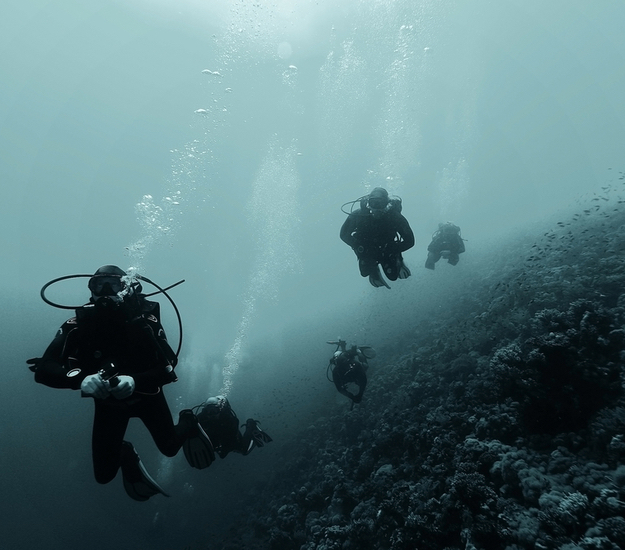Get down!
Become a diver. You should be a capable swimmer and medically fit. There are a few different SCUBA certification agencies, PADI being the most recognisable.
You can take a general PADI scuba course as a first diving course that can give you an international divers license to 12 meters, but you will still need to have a dive leader with you in the water. Most courses will involve classroom work learning diving theory and along with a number of dives to build your experience and confidence.
Once you have your Open Water Certificate the next steps are:
If you want to go further and become an Instructor yourself then crack on with these courses:
The list of dive qualification goes on and on and on....
You can get involved in Conservation Courses or Take Fish Identification courses in different regions. Recreationally you can certify in everything from Night Dives, Cave Dives, Deep Dives, Free Dives to Ice Dives. Professionally you can certify to become an instructor in all these fields.
Your best bet is to qualify as a Divemaster, find work and a mentor and the community will likely help guide your path. Diving can often be remote work and as a result it is a tight knit community online and around the world.
You will need to have up to date First Aid and CPR and EFR (Emergency First Response) at the minimum. This is a dangerous sport. You will need to be physically and medically fit, at times you will need this in writing from your doctor. If you do decide you can earn more working independently you will need all the right permits and comprehensive insurance. It’s always a good idea to ask an employer if liability insurance is included in a contract or if you need to have your own. This website provides general information and you should always do your own research first*
Select a region on the left for more information. You can message an employer on Work the Wilds to ask what they would accept. Find an employer HERE. When you have registered you can post any questions to our Wild Chat Board for personalised feedback. Register for Free. If you become a Green Flash Member you can spread the net a bit wider by increasing your communication ability and have your profile featured.
*Please remember that this is general information. We keep it as up to date as possible, but it's important you do your own research and know all the risks before heading out into the Wilds. If you are an expert in your sport and/or would like to become a contributor for Work the Wilds, please drop us an email at info@workthewilds.com or Contact Us


